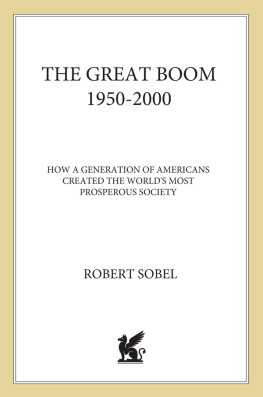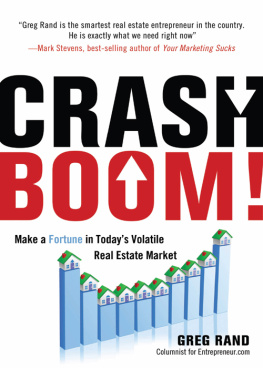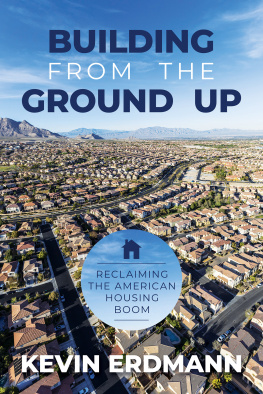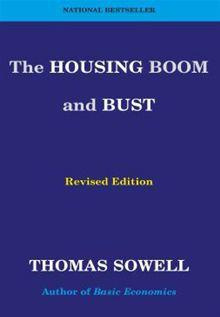Contents
Guide
The
GREAT
BOOM
19502000
HOW A GENERATION OF
AMERICANS CREATED
THE WORLDS MOST
PROSPEROUS SOCIETY
ROBERT SOBEL

TRUMAN TALLEY BOOKS
ST. MARTINS GRIFFIN
NEW YORK
The author and publisher have provided this e-book to you for your personal use only. You may not make this e-book publicly available in any way. Copyright infringement is against the law. If you believe the copy of this e-book you are reading infringes on the authors copyright, please notify the publisher at: http://us.macmillanusa.com/piracy.
For Carole
With Love and Gratitude
I do not mean that there is any lack of wealthy individuals in the United States; I know of no country, indeed, where the love of money has taken stronger hold on the affections of men and where a pro-founder contempt is expressed for the theory of the permanent equality of property. But wealth circulates with inconceivable rapidity and experience shows that it is rare to find two succeeding generations in the full enjoyment of it.
Alexis de Tocqueville, 1835
Sixty years ago there were no great fortunes in America, few large fortunes, no poverty. Now there is some poverty (though only in a few places can it be called pauperism), many large fortunes, and a greater number of gigantic fortunes than any other country in the world. One may surmise that the equality of material conditions, almost universal in the last century, still general sixty years ago, will more and more diminish by the growth of the very rich class at one end of the line, and of a very poor class at the other end.
Lord James Bryce, 1894
Since the New Deal and the 1930s there has been a revolutionary development in the technology of industry and in the fiscal policy and social doctrine of governments. The assumption of reformers from Theodore Roosevelt through Woodrow Wilson to Franklin Roosevelt was that the poor could be raised up only by a redistribution of wealth. The basic assumption of the pre-war reformers is being dissolved. We have come into an era when the class struggle, as Marx described it a hundred years ago, has been overtaken by events.
Walter Lippmann, 1964
The Great Boom opens by discussing how Americans came out of World War II with dreams, plans, and hopes, but few optimistic expectations. How did Americans who in 1945 imagined their futures might not be particularly bright come to accomplish so much during the ensuing fifty-plus years? Their children were able to build upon strong economic foundations, although some rejected their parents goals; but in general, they too succeeded in realizing similar ambitions and, from their own experiences, learned not to attempt to dictate the scenarios for their childrens lives. The grandchildren of the World War II GIs are now the junior managers and Internet entrepreneurs, and are starting to make headlines in the business and political press. They are not yet on the national scenethat is the role their parents still fill. After all, as these words are being written, George W. Bush, the son, not the grandson, of the former president, who is a World War II veteran, is being considered for the GOP presidential nomination. But their turns will arrive. And when they do come onto the national stage, their ambitions, goals, and styles are likely to differ from those of their parents. But not wholly.
It is important to remember that the world was not born de novo with the coming of peace in 1945; the GI generation had to make do with what they found when they returned home. Alterations in the social and economic fabric before and since took place, and there were many changes in their lives and the country. Often these arrived in unanticipated ways, and doubtless other changes will do so into the new millennium. The continuities in the lives of individuals and societies are as important as the shifts.
Americans did not enter a bright new world in 1945 or return to the tarnished one they recalled when World War II began, whether they dated back to the fighting in China in the 1930s, in Europe in 1939, or to the attack on Pearl Harbor on December 7, 1941. In many ways these new veterans and other survivors of the war retained the values that had proven useful during military service, while picking up where they left off when the war started to affect their lives. Nor did the shifts in their viewpoints and values that occurred in this period come to a discernable end decades later. The heritage of these people lives on in the influences they had on their offspring. So their legacy continues to affect all of us, as well as those to come.
The persistence of those experiences and the values they inculcated in the population became more obvious toward the end of the 1990s. The popularity of two recent World War II films, Saving Private Ryan and The Thin Red Line, the best-seller status of Tom Brokaws The Greatest Generation, the revival of swing dancing, and re-enactments of World War II battles in various parts of the country, akin to those of Civil War encounters, indicate that this age continues to live in the imaginations of individuals born well after World War II had ended. And this has become even more evident in recent years, as President Clintons impeachment crisis and the maxims that were drawn from it have become topics of wide national concern. Many have noted the differences between the moral tone of the Clinton presidency and most of those that preceded it.
For me, the planning, research, and writing of this book was a pilgrimage. The Great Boom is, in varying ways, an autobiographical work. I have vivid memories of the war and postWorld War II period. I knew GIs who emerged from the war. I attended college with them, and shared their hopes, fears, and aspirations. Their children and grandchildren were in my classes at Hofstra University, and I have kept in touch with many of them over the years. I feel as though I know them very well indeed.
A few months after V-E Day, then a teenager playing stickball in the streets of the Bronx, I was approached by a young sailor on his way home. He had a duffel bag slung across his back and a wide smile on his face. That sailorhe seemed to be my agebeckoned. Would I do him a favor? Of course. We walked together to a nearby house, and he asked me to stand in front of the door and ring the bell. I did so, and in a minute a young woman appeared. She looked somewhat disappointed at seeing me. Clearly she had been expecting someone else. With this, the sailor popped out from behind a bush and the two of them grinned widely at one another, followed by the most angelic smiles I have ever seen. The sailor then thanked me and offered me a quarter, obviously to pay for the service I had performed. I cant take anything from you, I blurted. I returned the coin and started to cry. From the look on his face I think he knew why. At least I hope he did. I owed him and millions of others like him so much. I have never lost that feeling. I walked away and went home. It was not the time for stickball.
One more story: In 1957, I was hired as an instructor at Hofstra College on Long Island, and my wife and I were ready to purchase a house. I insisted on looking at Levittown, and we bought what was advertised as a two-bedroom ranch home there for $10,500. We were the second owners. The people from whom we purchased the house had a GI mortgage, which we assumed; and the monthly payment, including taxes, came to less than $100. My wife and our parents were delighted. It was a good buy, they said. I felt the same, but for different reasons. We would be living in a house that had been occupied by a World War II veteran, and I would have an important connection with people to whom I and my generation owed so much.








